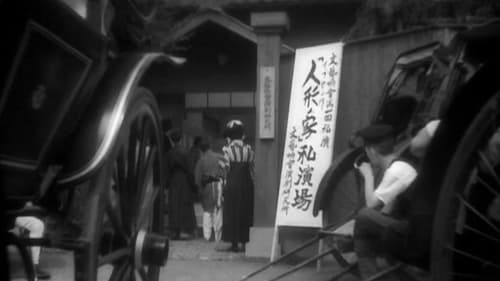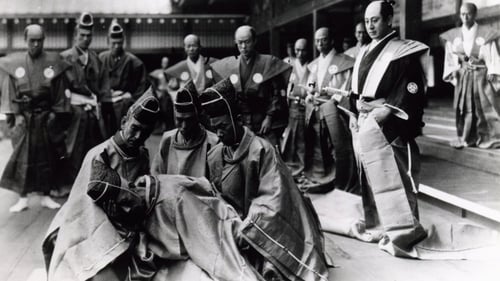
Shimizu no Jirocho
The tale of a feudal swordsman who cynically takes no responsibility for anything, relegating it to others, and then taking the credit.

The stage director Shimamura, who is bringing western theatre to Japan, falls in love with the outspoken actress Sumako Matsui, and leaves his family to be with her, while trying to keep his Art Theatre solvent.

Heihachirô Kondô
El 14 de Marzo de 1701, en la real capital de Edo, el señor feudal Asano ataca al señor Kiru mientras se encuentra en tierra sagrada. A causa de esta grave ofensa, Asano es obligado a hacerse el harakiri. Sin embargo, 47 de sus samuráis juran vengar a su amo. Estrenada en dos partes en Japón, la primera de 112 minutos el 1 de diciembre de 1941 y la segunda de 111 minutos el 11 de febrero de 1942. (FILMAFFINITY)

En el Tokyo de 1885, Kikunosuke Onoue, hijo de un importante actor, descubre, desolado, que es aplaudido únicamente por ser el heredero de su padre y que, en realidad, el público se mofa de sus interpretaciones. La única persona que se atreve a ser sincera con él es Otoku, la niñera de los hijos de su hermano. pero precisamente por ello es despedida, y a Kikunosuke le prohiben verla por temor a los rumores que se desatarían por su relación con una sirvienta.

dir: Teinosuke Kinugasa

Daikan
An onnagata (female impersonator) of a Kabuki troupe avenges his parents' deaths. Remade in 1963 as Yukinojô Henge.

Period film from 1934.

Jidaigeki film, only a fragment remains of the original film.

Yaji and Kita: The Battle of Toba Fushimi is a 1928 Japanese film directed by Tomiyasu Ikeda.[1] This comedy film showcases the acting talent of Denjirō Ōkōchi and acts as a complementary film to Yaji and Kita: Yasuda's Rescue, which is part of the Yaji and Kita series. An 8-minute remnant of the film was released on DVD by Digital Meme with a benshi accompaniment by Midori Sawato. The version in the National Film Center is 23 minutes long.

Sozenji Baba is a 1928 black and white Japanese silent film directed by Masahiro Makino. It is an ambitious film in which Makino deals with the difficult issue of the agony of a person who killed for revenge.

All that remains of the first Samurai Town Story is the concluding battle.

Toshizo Hijikata
Yaji and Kita: Yasuda's Rescue is a 1927 black and white Japanese silent film directed by Tomiyasu Ikeda.[1] This comedy film showcases the comic talent of Denjiro Okochi, which contrasts markedly with his heroic performance in Oatsurae Jirokichi Koshi. The humorous exchanges with Goro Kawabe, his senior at Nikkatsu, can be priceless, with the expressions and movements of the two goofy characters making for pure, hilarious slapstick comedy. A 15-minute remnant of the film was released on DVD by Digital Meme with benshi accompaniment by Midori Sawato and Ryubi Kato.

Akira Naruse / Gorô Katayama - Private Detective
One of Mizoguchi's first films, considered lost.

Directed by Kensaku Suzuki.

Tsurikichi
Película dividida en historias diferentes que caminan en paralelo. Por un lado, un joven deja su casa de Tokyo y tras tener un hijo decide casarse con la madre y regresar a su hogar. La segunda historia concierne a un par de delincuentes que buscan trabajo en la ciudad. Film mudo, uno de los pioneros en Japón. Se considera el primer montaje en paralelo del cine asiático, siendo, a su vez, el primer clásico del cine japonés.








